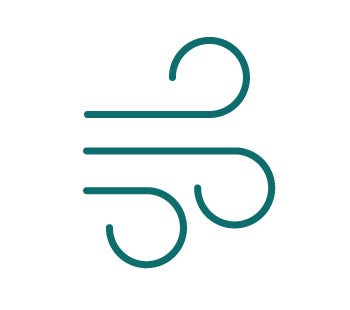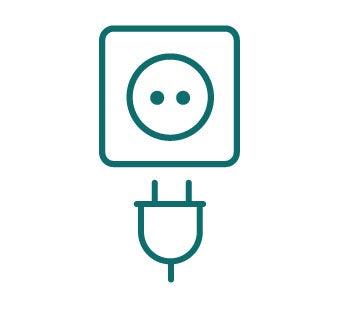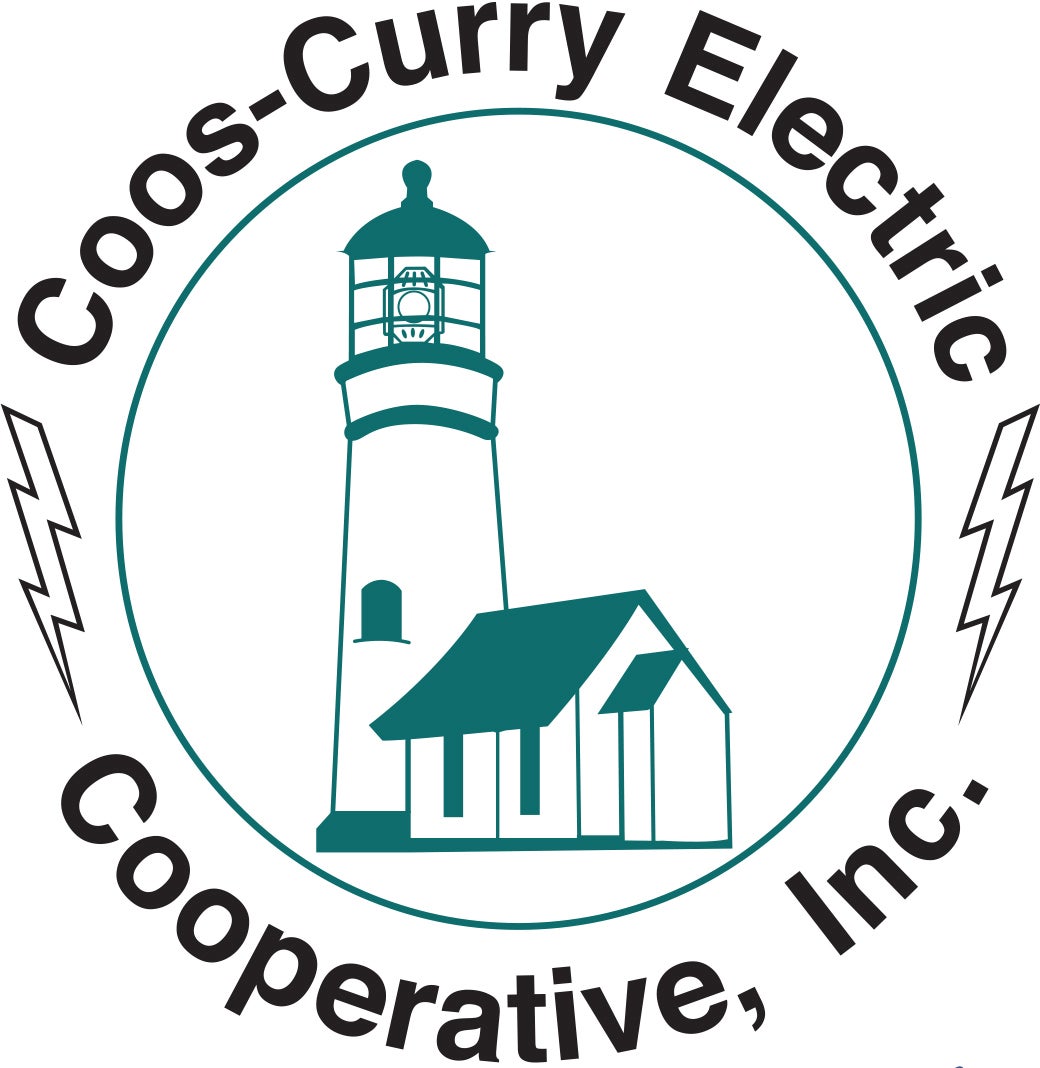Energy Conservation Tips
Slash Your Electricity Bill and Keep More Money in Your Pocket
Are you aware that conserving energy not only saves you money but also benefits Coos-Curry Electric Cooperative, Inc. members? Using less energy and reducing your demand to the system helps keep electricity rates more affordable. That's why it is our priority to share our energy efficiency programs and educational resources with our members to understand the greater value of energy conservation.
If you are seeking assistance to help reduce your CCEC bill or want information on how to do it yourself, we hope you use these resources to save.
Energy Efficiency Tips
Heating & Cooling
Heating & Cooling
- Keep your thermostat set at 78 degrees or higher during the cooling season and 72 degrees or lower during the heating season. Use of ceiling fans while you’re in the home can make these higher temperature settings feel four or more degrees cooler. A one-degree change in the thermostat setting can cost you an additional 3 percent in energy costs.
- Use a programmable thermostat.
- Make sure your thermostat is reading correctly. Use a thermometer you know is accurate to check your thermostat. If your thermostat is reading incorrectly, have it repaired or replaced.
- Keep the outdoor unit clean and free of debris.
- Have your heating and cooling system tuned up by a licensed professional once a year.
- Check your home’s ducts. Leaking ductwork can be the source of up to 25 percent of heating and cooling costs.
- Make sure your vents are open and not blocked by furniture.
- Change your filter at least once a month. This will not only keep your air cleaner but also will prolong the life of your heating and cooling system, as a clean system will run more efficiently. A dirty filter can increase your heating and cooling costs as much as 10 percent.
- Consider the purchase of a new heating and cooling system if yours is 15 years or older.
Water Heater
Water Heater
- Hot water can account for up to 30 percent of your energy costs — second only to your heating and cooling expense.
- Insulate older electric water heaters with an insulating blanket available at hardware stores. If your water heater feels warm to the touch, then it needs additional insulation.
- Insulate your hot water pipes coming out of the water heater. This can result in a 3 percent savings in heating costs.
- Install a piece of insulation board under your water heater for additional energy savings.
- Reduce the consumption of hot water to save you money. Suggestions include:
- Install a low-flow showerhead in the shower as well as reduce time in the shower.
- Run the dishwasher and washing machine only when full loads can be washed.
- Turn down the temperature setting on your water heater to 120 degrees.
- Use cold water as much as possible when washing clothes.
- Repair leaking hot water faucets.
- Don’t let the hot water tap run unnecessarily.
Lights
Lights
- Place light-emitting diodes, or LEDs, in heavily used fixtures. They offer similar light quality to traditional incandescent bulbs, last 25 times as long, and use even less energy than compact fluorescent lights.
- Switch to compact fluorescent light bulbs. They will last up to 10 times longer than comparable incandescent bulbs and will produce the same level of light for one-fourth of the operating cost. They also will reduce your home’s cooling load, as they do not produce as much heat.
- Turn off lights when possible and remove unwanted light bulbs where light is too bright.
Air Infiltration

Air Infiltration
- Normal air leakage doubles when a central air conditioner is running. This is caused by pressure created in the air conditioner and the ductwork. Consequently, you need to reduce or eliminate air leakage as it can account for 10-30 percent of the cooling load. Leakage is commonly found around electrical service boxes, plumbing infiltrations, fireplaces and chimneys, heating and air conditioning ducts, light fixtures and attic access doors.
- Caulk and weather-strip around all doors, windows and other openings.
Miscellaneous Efficiency Tips

Efficiency Tips
- Pre-heat your oven just long enough to reach the correct temperature. Turn it off five to ten minutes early before removing food from the oven.
- Bake several dishes at the same time. It uses no more energy — you get two or more for the price of one.
- Use a microwave oven when possible. A microwave uses up to 50 percent less energy than a conventional oven.
- Keep your refrigerator and freezer as full as possible. A half-empty appliance uses more energy.
- Keep your refrigerator and freezer doors closed. Opening the doors causes the appliance to use more energy.
- Make sure your refrigerator and freezer gaskets are tight. Close the door on a heavy piece of paper. If it pulls out easily, the gaskets may need replacing.
- Keep your refrigerator and freezer at the right temperature. If they’re only 10 degrees colder than necessary, your operating costs will go up 25 percent. Refrigerators should be between 38 and 42 degrees and the freezer between 0 and 5 degrees.
- Use short cycles for everything but the dirtiest dishes. This can save up to 25 percent on hot water and electrical usage. If your dishwasher has an air-dry setting, use it instead of the heat-dry setting.
- Washers and dryers can account for as much as 25 percent of electrical usage. When running these appliances always use a full load. Clean the lint filter in your dryer after each use. This will keep the dryer from running longer.
- Minimize the heat entering your home from outside by closing shades or curtains on hot days.
- A heated waterbed can use as much energy as a large refrigerator. Leaving it unmade can double its energy costs.
- Many televisions, DVD players and electronic devices use power even when they are turned off. Unplug these when not in use or at least when you’re going away on vacation, etc.
